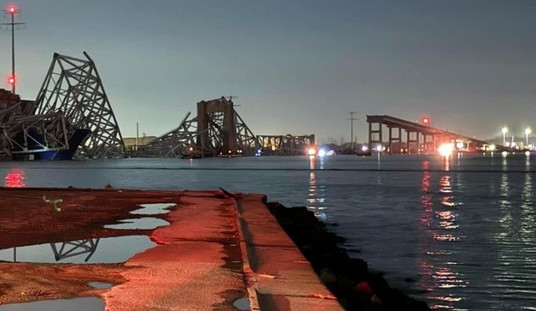We recently looked at a report showing that the new infrastructure bill is a prime target for fraud, with analysts predicting that as much as 15% of the money being made available will be illicitly taken. The bill contains very few provisions to prevent that from happening. Today’s story out of California should serve as a reminder that the last rounds of COVID relief were similarly targeted by thieves and the problem is still ongoing. While many of the people submitting claims for bogus Paycheck Protection loans “only” scooped up cash in the tens of thousands of dollars, one enterprising California couple has put them all to shame. Richard Ayvazyan, 43, and Marietta Terabelian, 37, were convicted this week of collecting more than $21 million in fraudulent loans. The judge handed down some lengthy prison time for the duo, but there’s one small problem. They have flown the coop and nobody is sure where they are right now. (NY Post)
A California couple was sentenced to prison for illegally obtaining more than $20 million in COVID-19 relief funds — but authorities need to catch them first.
Richard Ayvazyan, 43, was sentenced to 17 years behind bars and his wife, 37-year-old Marietta Terabelian, received a six-year sentence in federal prison on Monday for conspiracy, bank fraud and money laundering, according to the Department of Justice.
The two are on the run from authorities and were sentenced in absentia. Federal officials said they cut their tracking bracelets on Aug. 29.
The FBI took to social media to ask for help in locating the couple.
(Corrected) Richard Ayvazyan, 43, & Marietta Terabelian, 37, were found guilty in $21 million bank/SBA fraud & are set to be sentenced. The pair allegedly cut monitoring bracelets & are considered fugitives. Please call 3104776565 if you have info as to their location #TipTuesday pic.twitter.com/pyyGOMiVF4
— FBI Los Angeles (@FBILosAngeles) September 1, 2021
When I was growing up, my grandmother used to have a saying, though it might not have been the best way to set an example for children. She used to say, ‘if you’re going to steal a penny, you might as well steal a million dollars.’ Ayvazyan and Terabelian seem to have taken that philosophy to heart in a big way.
Since the FBI wasn’t able to quickly locate the pair, it’s tough to say how long it might take to track them down. You can do a lot of hiding and traveling with twenty million dollars to spread around. And if they had any sort of comprehensive plan in place when they embarked on this scheme, they might already be out of the country.
Back in June, the couple was convicted of eleven counts of wire fraud and eight counts of bank fraud. This suggests that they didn’t score the entire twenty million in a single COVID relief check and likely kept going back to the well over and over.
This episode should once again make it clear how little thought was put into these massive relief packages as the government rushed at warp speed to make it look like they were “doing something” to help people who were negatively impacted by the pandemic. It’s almost understandable (if not forgivable) how some of the thousands of people who obtained fraudulent PPP loans in amounts of ten or twenty thousand dollars might have slipped under the radar for a while. But how could one couple keep tapping the system over and over again until they had racked up 20 million without anyone noticing?
Now the infrastructure bill is going to begin dishing out more than a trillion dollars all over the country and there is already talk of another round of COVID relief being in the works. As taxpayers, it’s worth asking Congress whether any lessons have been learned from the previous waves of fraud and if any better protections have been put in place to prevent it all from happening again. We certainly have plenty of infrastructure projects that need to be attended to and I’m sure there are still employers out there who are legitimately struggling because of COVID-related issues who could use some help. But if the government is going to be handing out that much of our money, they have a responsibility to do the best job possible in ensuring that the money isn’t lost to waste, fraud, or abuse.







Join the conversation as a VIP Member